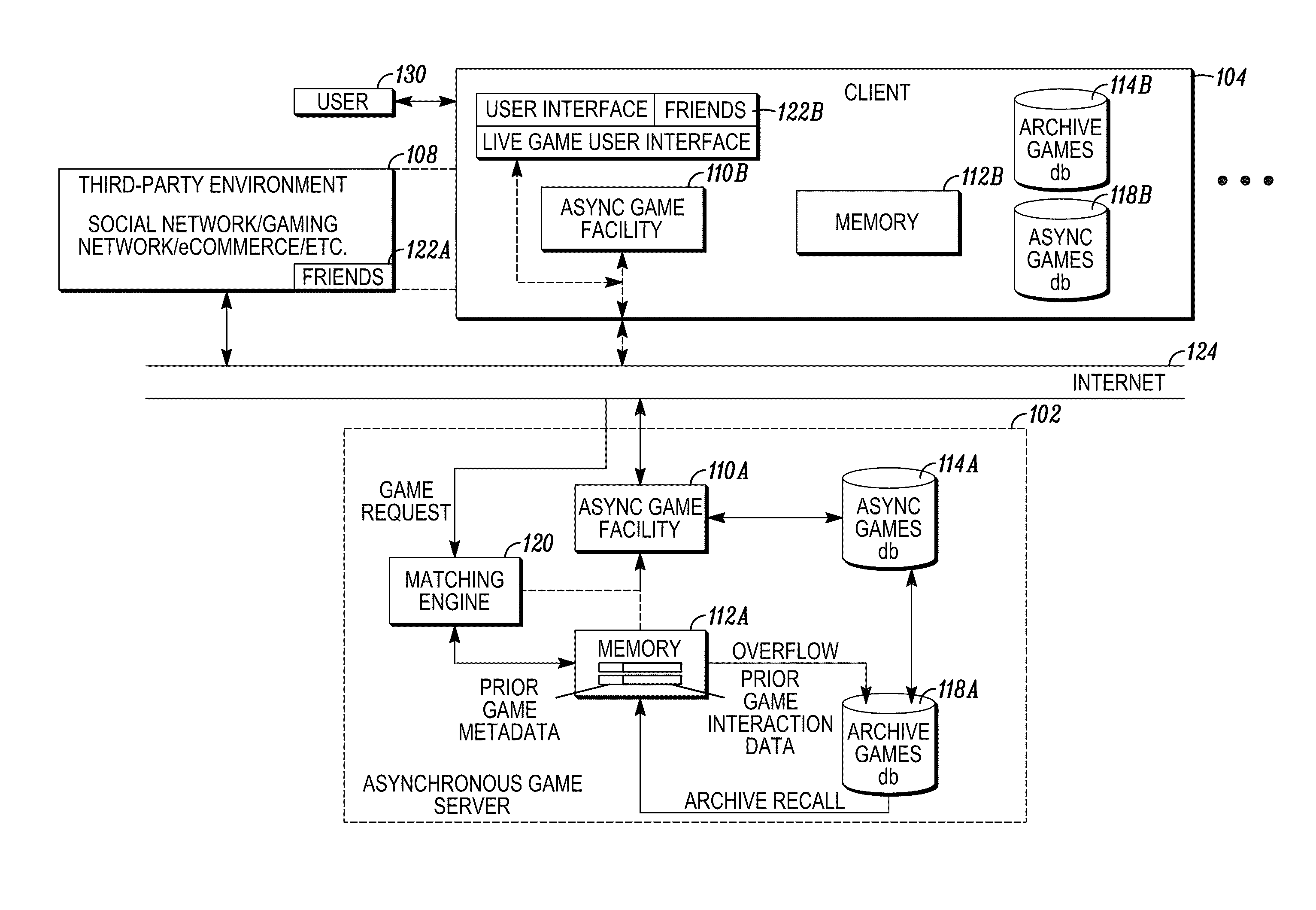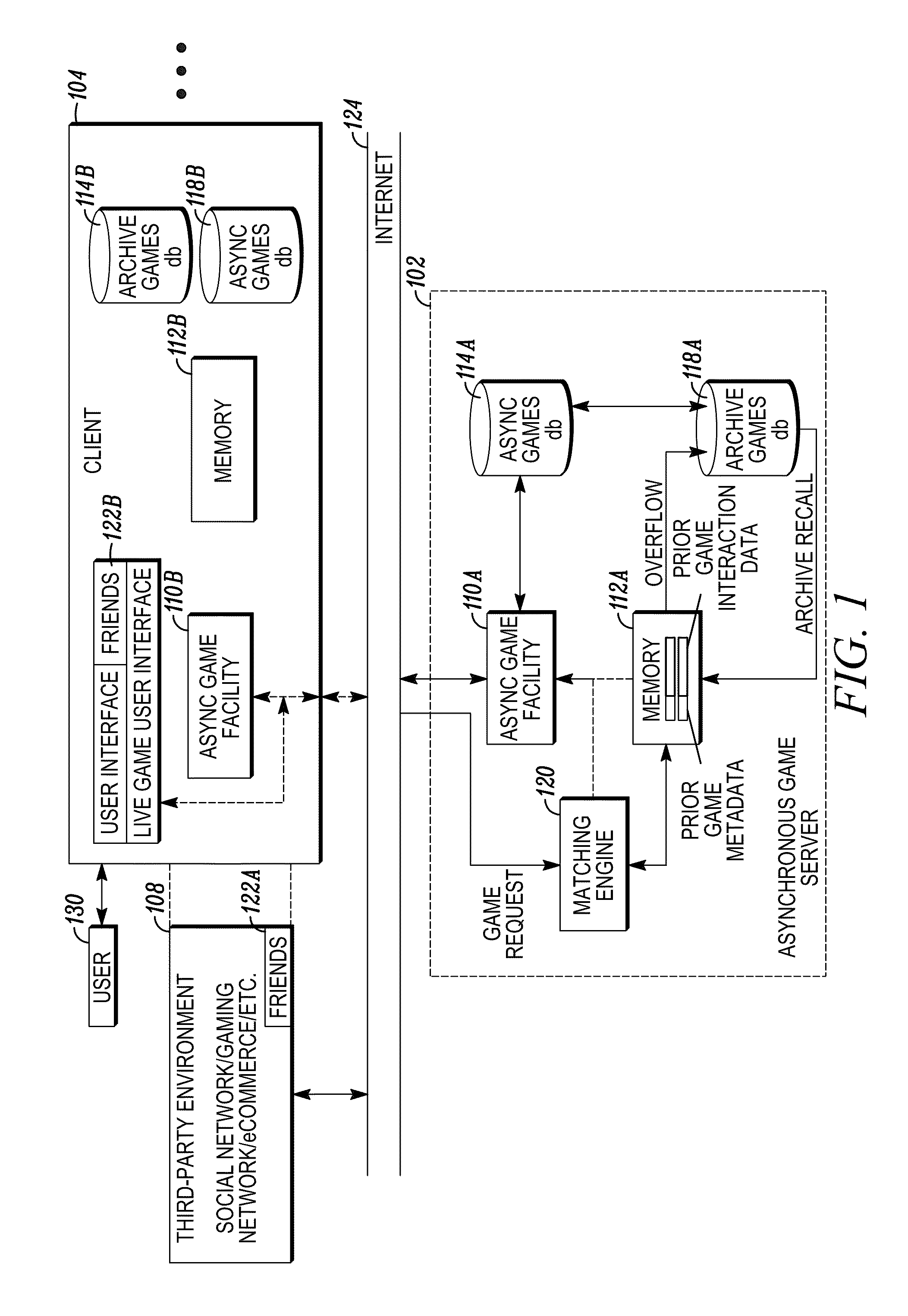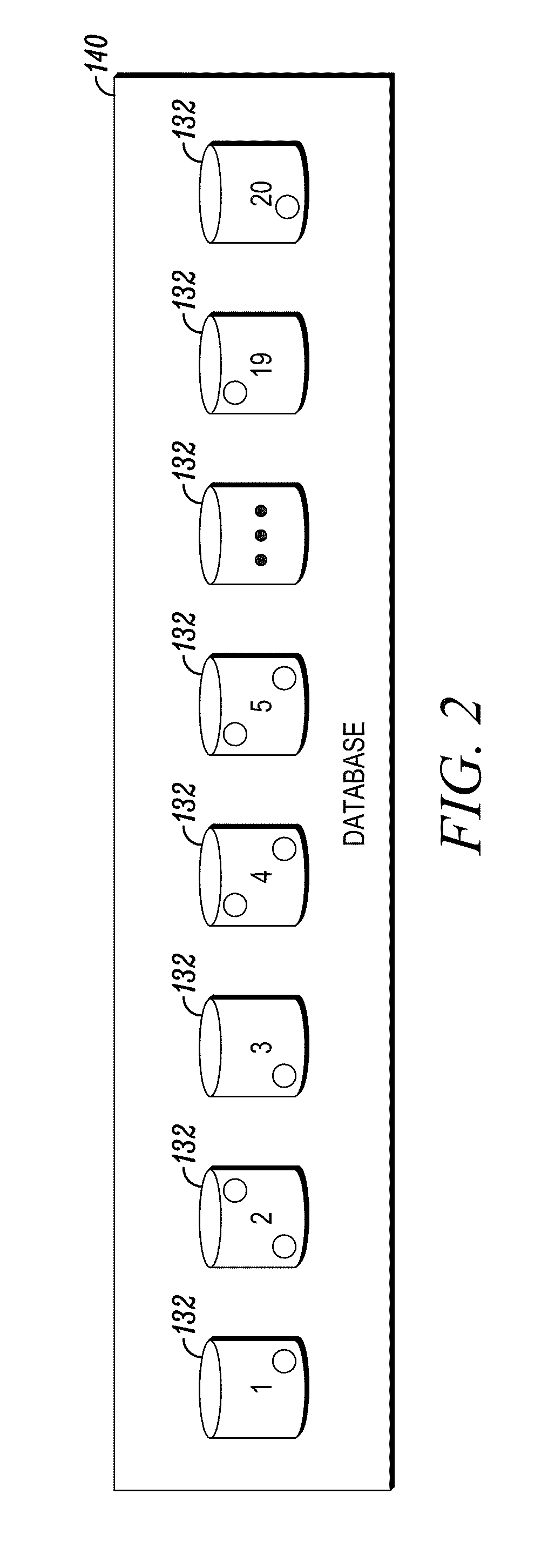Interactive hybrid asynchronous computer game infrastructure with dynamic difficulty adjustment
a computer game and hybrid technology, applied in the field of computer games, can solve the problems of synchronous games becoming very difficult to play, affecting the quality of experience, and limited interactivity, and achieve the effect of improving synchronization
- Summary
- Abstract
- Description
- Claims
- Application Information
AI Technical Summary
Benefits of technology
Problems solved by technology
Method used
Image
Examples
Embodiment Construction
[0070]In embodiments, the present invention may enable a computer game player to have an interactive game play experience with a computer game player opponent without the need for the computer game player opponent to be simultaneously on-line with the computer game player. In embodiments, the computer game player opponent may be a known computer game player opponent, an unknown game player opponent, a computer game player opponent as selected or matched up by the present invention, a computer game player opponent as selected by the computer game player, and the like. That is, the present invention may provide the enjoyment and excitement of playing another player in real-time like play without the need for the other player to be actively playing the game at the same time. For instance, in an embodiment where a set of three players know one another, player one may play player two in the morning. Player three may want to play player one in the afternoon, but player one is no longer lo...
PUM
 Login to View More
Login to View More Abstract
Description
Claims
Application Information
 Login to View More
Login to View More - R&D
- Intellectual Property
- Life Sciences
- Materials
- Tech Scout
- Unparalleled Data Quality
- Higher Quality Content
- 60% Fewer Hallucinations
Browse by: Latest US Patents, China's latest patents, Technical Efficacy Thesaurus, Application Domain, Technology Topic, Popular Technical Reports.
© 2025 PatSnap. All rights reserved.Legal|Privacy policy|Modern Slavery Act Transparency Statement|Sitemap|About US| Contact US: help@patsnap.com



